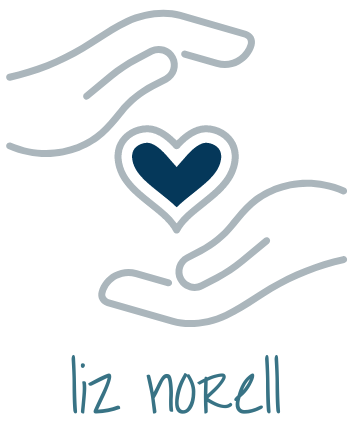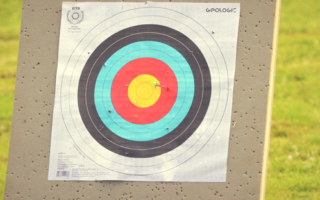If neurons audibly clicked when they found a connection, my brain was a spectacular fireworks show last night. Somehow, just hearing one line from an Esther Perel conversation caused this incredible ripple effect of connections to all fall into place. Bear with me, please. I have much to say.
Over the weekend, I went to a yoga workshop at the Asheville Yoga Center (AYC), my training home for advanced yoga studies (I’m now roughly 3/5 through my 300-hour training). It was a special event for the AYC, a once-yearly opportunity to study with James Fox, founder of the Prison Yoga Project (PYP). At weekend’s end, after 14 hours of study, 50 of us became certified PYP teachers and able to work with the Project to offer trauma-informed, mindfulness-based yoga classes to underserved populations in prisons and elsewhere.
Friday night, as we gathered for our first meeting, James asked each person to introduce themselves and what they came to the training hoping to learn. I was honest: “I’m not really sure why I’m here, but I know I was called to be here, so I assume I’ll figure it out.”
James smiled. “I love it when people aren’t sure why they’re here.” Because that’s when the magic happens — he didn’t have to say that for me to know what he meant.
that’s when the magic happens
While there was a lengthy list of readings to complete before arriving (mostly research and background information on the efficacy of mindfulness / yoga and the prison system in general), the homework for the first full day of training was an abbreviated version of an article called In the Service of Life, by Rachel Naomi Remen, MD.
This article…
Whoa.
Here’s the nugget paragraph (and sorry for the length, but there is just not anything here that feels redundant or unnecessary):
Serving is different from helping. Helping is based on inequality; it is not a relationship between equals. When you help, you use your own strength to help those of lesser strength. … People feel this inequality. When we help, we may inadvertently take away from people more than we could ever give them; we may diminish their self-esteem, their sense of worth, integrity and wholeness. When I help I am very aware of my own strength. But we don’t serve with our strength, we serve with ourselves. Our limitations serve, our wounds serve, even our darkness can serve. The wholeness in us serves the wholeness in others and the wholeness in life. The wholeness in you is the same as the wholeness in me. Service is a relationship between equals.
This was a seriously A-HA! moment for me, in many ways, but it wasn’t for a couple of days that I put the language of Remen’s beautiful, articulate essay in the context of my own process of self-discovery over the last couple of years, particularly the lessons of the Enneagram that landed with me last summer (Soul School).
The Enneagram is a typology for ways of being in this world. It may be easier to just call it a personality framework, with nine different dimensions. It’s got a long history, and I’ve found the insights generated by studying my Enneagram type (I’m a 2) quite helpful as I understand where I still have work to do in growing into the version of myself most in harmony with those around me. (If you want to take one version of an Enneagram test, you can try this one, although I recommend doing an official test with an Enneagram coach for more robust support/results.)
Enneagram Type 2s are called “helpers” — and to say that I embody the description of the Type 2 is a gross understatement. My particular variation of 2 (“Enneagram 2 with a one-wing”) is specifically called, “the servant.”
So that’s … better, I guess?
So much of Remen’s essay landed with me because I aspire to be in service to others, but I think I too often approach things from a place of helping. Even just becoming aware of the important distinction between these two concepts is useful for me. Trying to act from a place of serving others, rather than helping them, is my mission moving forward.
That would be such a great place to end this blog post, wouldn’t it? An emotion-filled reading of a paradigm-shifting essay, a connection with some personal development work done previously, and a mission to be a better Liz moving forward. Bam! That’s the recipe for some great blogging, IMO.
But, dear reader, you forgot where I began, didn’t you? With Esther Perel? We’ve gotta get my favorite Belgian relationship expert in here!
On my way back from Prison Yoga training, after having connected the dots of “helping” with the Enneagram type that so clearly defines me, I was listening to Esther Perel‘s podcast, “Where Should We Begin?” — specifically season 2, episode 5, “Questions You Aren’t Allowed to Ask,” in which two women in a 19-year relationship are confronting some challenges around the beginning of their relationship and how those challenges continue to manifest nearly two decades in.
One of the women says about her girlfriend’s behaviors, “I feel like I’m her parent, and she’s a child.” This behavior, of reminding your partner to do things … I don’t know many women who can’t relate to that sense of frustration, like, “WHY IS IT SO HARD FOR YOU TO _______?!?!?!”
Esther whips out three sentences that cut me to my core — seriously, like, I stopped at a stop sign and didn’t move for a little bit (nobody was behind me, don’t worry) as I cut off the radio and just stared out my windshield, aghast:
You do understand that when there is a parent and a child, there is never any sex. Cause if your head is screwed up right on your shoulders, there should not be sex between a parent and a child. So… if this remains the emotional organization of your relationship, sex will be out of the relationship.
.
So… if this remains the emotional organization of your relationship, sex will be out of the relationship.
.
I’m not going to blog about the intimate details of any of my relationships, so this isn’t a personalized moment of record-scratching-as-everyone-rubbernecks-to-see-what-just-happened WTF?!
But just think about how many women in our world see their partners (male or female) as people who need their capital-H Help to do things they probably can’t do or wouldn’t remember to do … and how that plays into a power dynamic that often leaves women feeling like they are in a parent-ish role … and how that infantalizes the other person … and how that makes intimacy, of any kind, feel … well. Gross. Undesirable. Inappropriate. I’ve never connected these dots, and I doubt others have easily seen the lines between them, either. So I don’t mean to suggest that women are doing any of this consciously.
But — at least for me — it does resonate, in that powerful, in-the-belly sense that something big and truthful is here. When women fall into the socially normative role of caretaking in their relationships or families, and when they do so from a place of Helping (with all the baggage Remen helps us see in that type of action), I believe it may well trigger a part of our unconscious instincts against intimacy.
.
If I was worried about being a “helper” before Esther said those three sentences, the stakes just got a lot bigger afterwards.
I want to know, because I’m still refining my thinking on these questions — so chime in, in the comments or on Facebook: In what ways do you find yourself helping, instead of being in service to others? How does that intersect with other things you know to be true about yourself (your personality, or your way of being)? And women in particular, do you see yourself in what Esther Perel has to say?
***
{Hat tip to Sheri at Big Bravely, who introduced me to Esther Perel’s podcast. You should check out Sheri’s site, because she’s amazing. And hosts concerts, too.}




